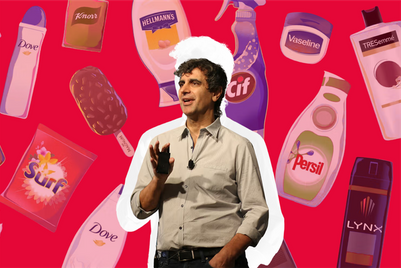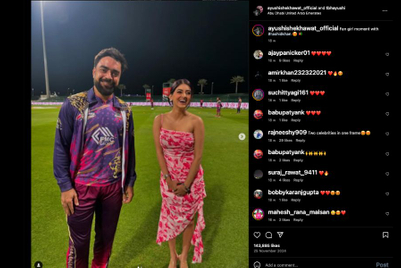.png&h=570&w=855&q=100&v=20250320&c=1)
Earlier in February, the Advertising Standards Council of India (ASCI) laid down draft guidelines for influencer advertising across digital, to help consumers distinguish between content that is promoted to influence consumers' opinion or behaviour for an immediate or commercial gain.
Keeping in mind the feedback received from known industry bodies, influencers, stakeholders, advertisers and brands, ASCI has rolled out the final guidelines and launched the ASCI.Social platform, to be in touch with and understand the influencer community better.
The new guidelines will apply to commercial messages or advertisements from June 14.
Kicking off the launch of the ASCI.Social platform, in collaboration with BigBang.Social, ASCI hosted a virtual press conference attended by Subhash Kamath, chief executive officer, BBH and Publicis Worldwide, India and chairman, ASCI; Manisha Kapoor, secretary-general, ASCI; Dhruv Chitgopekar, founding partner, Collective Artists Network and CEO, BigBang.Social, and actor and social media influencer Dolly Singh where they discussed the new guidelines. The session was moderated by Ashraf Engineer, executive director, Pitchfork Partners Strategic Consulting.
Setting context to the evolution of the influencer world, Singh said, “When I started six years ago, there wasn't much happening with paid content or advertising. However, brands slowly recognised the power of influencers and so did we. 2020 has been a big change in the number of people making content. Brands’ budgets towards influencer marketing have increased to a large extent. When I got the first call, ASCI asked me all the problems we face. The decision is a collaborative effort, wherein influencers have been approached and brands have been talked to”.
Speaking about the necessity for the guidelines now, Chitgopekar added, “Any industry requires frameworks. These can be limiting but liberating. Our effort was to try and bring as many voices together and we've done the best we could. We looked at developed countries and their influencer guidelines and adapted them to the Indian metrics. It gives the industry further legitimacy. These are guidelines, not handcuffs.”
Chitgopekar also added that the guidelines are only a part of phase one and are going to consistently evolve.
Singh added “As part of the community, these guidelines give us the acknowledgement that we exist. It has been unregulated for long and we want to be transparent to our audiences, who have put so much faith in us. Most people now know what a paid partnership looks like, even without a tag, but it's just fair to let them know so they can make their informed decision.”
The guidelines brought up questions about the possible restriction of creative freedom, to which Kamath answered, “They don’t restrict creative freedom. It is a transparency disclosure. We advertisers have been doing paid-for advertising all these years and that has not restricted our creativity. Even some newspapers flag off paid content so that the reader is not deceived.”
However, Singh pointed out a few challenges that have been sparked with the implementation of the guidelines. “It is challenging to be so transparent and make content that appeals to the audience. I have noticed a dip in my engagement and views when my posts were tagged as ‘paid partnership’, but at the same time, I do get comments that appreciate the ad. If the creator manages to strike a balance in terms of branded content and a good plugin of a product, that really helps.”
Giving some insight into the launch of ASCI.Social, Chitgopekar explained that the platform was created as a combination of education and advocacy. “Our value was to create a platform where creators, brands and consumers can come together. It is currently a place that created a gamified experience to help creators understand what it is to follow the guidelines. We felt that social required a zone of its own.”
To monitor the potential violation of these guidelines, ASCI has also identified a French technology provider, Reech, a cloud platform that will detect a lack of disclosure of any posts of commercial nature on social media.
Speaking about the same, Kapoor said, “Machine learning algorithms and pattern searching Regex (Regular Expression) maximise accuracy. As part of ASCI’s increasing focus on digital content, we will continue to deploy advanced technology solutions to keep track of advertisements that violate the ASCI code.”
Talking about the brand sentiment concerning this, Singh stated that brands need to step in and take just as much responsibility as influencers. “When the first draft was out, brands were cordial about this and are still in the process of adapting to it. Of course, there will be naughty brands who wouldn’t want to comply, and in that case, you can decide whether or not you want to work with them.”
Kamath claimed that although 95% of influencers have complied with the guidelines, in cases of absolutely no compliance, ASCI would refer the case to the sector regulator of the category to take charge.


.jpg&h=334&w=500&q=100&v=20250320&c=1)
.jpg&h=334&w=500&q=100&v=20250320&c=1)
.jpg&h=334&w=500&q=100&v=20250320&c=1)




.jpg&h=334&w=500&q=100&v=20250320&c=1)



.jpg&h=268&w=401&q=100&v=20250320&c=1)



.jpg&h=268&w=401&q=100&v=20250320&c=1)


